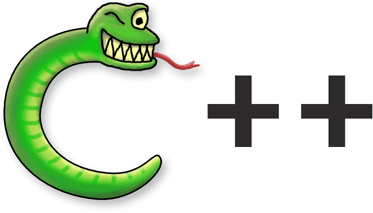Improve your C++ with Inspirations from other languages - Andreas Reischuck
A new video from Meeting C++ 2017:
Improve your C++ with Inspirations from other languages
by Andreas Reischuck
March 11-13, Online
March 16-18, Madrid, Spain
March 23-28, Croydon, London, UK
March 30, Kortrijk, Belgium
May 4-8, Aspen, CO, USA
May 4-8, Toronto, Canada
June 8 to 13, Brno, Czechia
June 17-20, Folkestone, UK
September 12-18, Aurora, CO, USA
November 6-8, Berlin, Germany
November 16-21, Búzios, Rio De Janeiro, Brazil
By Meeting C++ | Jan 19, 2018 10:21 AM | Tags: python programming meetingcpp intermediate haskell experimental efficiency basics
A new video from Meeting C++ 2017:
Improve your C++ with Inspirations from other languages
by Andreas Reischuck
By Meeting C++ | Oct 13, 2017 04:04 AM | Tags: qtdev qt python meetingcpp c++14 basics
New Just C++ episode, this time its about porting some python code to C++:
Just C++ - Penrose tiling from python to C++ & Qt
by Jens Weller
By Jeremy Wright | Jan 12, 2015 10:06 AM | Tags: variant python intermediate boost
A useful application of boost::variant with boost::python by Mario Lang.
boost::python and boost::variant
by Mario Lang
From the post:
However, there is one aspect of C++ data types that I couldn't figure out how to interface with Python, which are C++ discriminated unions, or more specifically, heterogeneous containers. While Python has no problems with containers containing objects of different types, C++ does not make this very easy by default.
By Daniel França | Dec 2, 2014 09:39 AM | Tags: python c++14 c++11
 A nice article pointing out similarities between modern C++ and Python:
A nice article pointing out similarities between modern C++ and Python:
C++ Has Become More Pythonic
by Jeff Preshing
From the article:
C++ has changed a lot in recent years. The last two revisions, C++11 and C++14, introduce so many new features that, in the words of Bjarne Stroustrup, “It feels like a new language.”
It’s true. Modern C++ lends itself to a whole new style of programming – and you can’t help but feel Python’s influence on this new style. Ranged-based for loops, type deduction, vector and map initializers, lambda expressions. The more you explore modern C++, the more you find Python’s fingerprints all over it.
Was Python a direct influence on modern C++? Or did Python simply adopt a few common idioms before C++ got around to it? You be the judge...